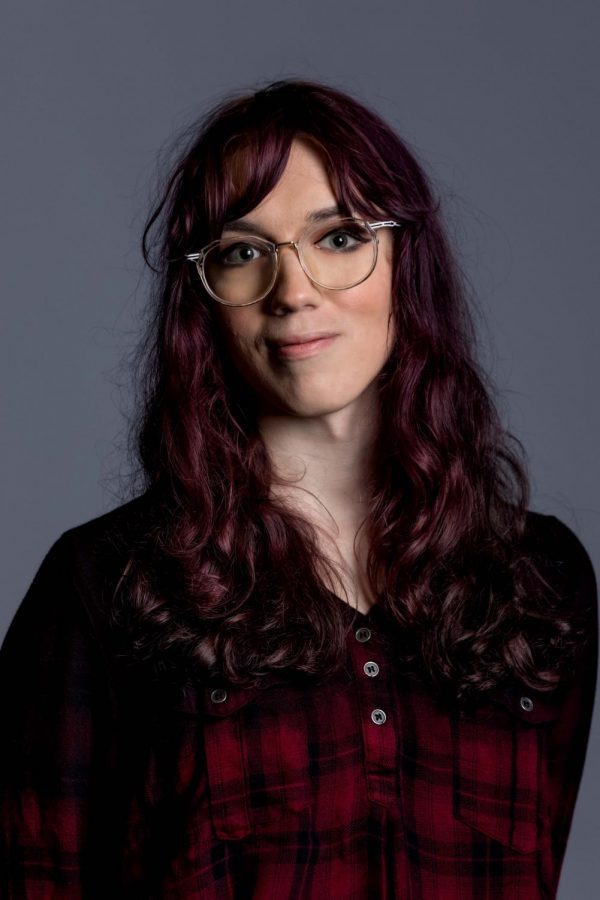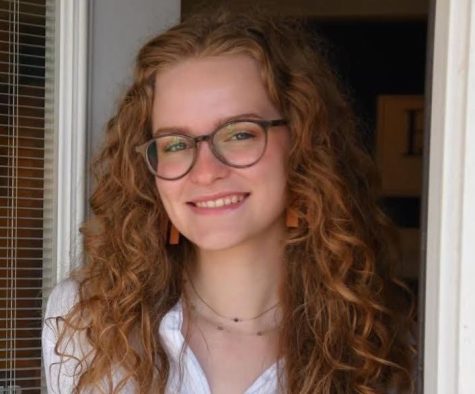Transgender students at South Dakota State worry about impact of upcoming anti-transgender bill
January 29, 2020
On Jan. 15, House Bill 1057 was introduced during the South Dakota Legislative session as the Vulnerable Child Protection Act. If passed, the bill would criminalize medical professionals for prescribing medication, like testosterone blockers and Hormone Replacement Therapy (HRT) to minors.
This bill is one of many anti-transgender bills introduced in the past few years in South Dakota. In 2016, HB 1008 sought to ban transgender students from using bathrooms that correlate with their gender identity. Then, in 2019, HB 1225 sought to “establish a determinant in identifying a student’s sexual identity for the purpose of participation in high school athletics.”
The medication discussed in the bill’s articles would allow transgender minors to start their transition process before puberty. For Allison Belladonna, a transgender student, starting this process sooner would have made all the difference.
“Some of those features that puberty emphasizes, it literally hurts,” Belladonna said. “I thought I was broken. … Had I realized when I was 15 or 16, things would’ve been different.”
However, Rep. Fred Deutsch, the prime sponsor of the bill, thinks these procedures could harm children and they do not yet have the maturity to make such decisions.
“We want to give children the time to simply grow up,” Deutsch said during the House State Affairs committee hearing. “We don’t want them taking drugs, we don’t want them taking puberty blockers.”
Many transgender people are concerned with this notion. They believe politicians are ignoring the fact that, although the people affected by this bill are children, they are also human beings. Felix Busk, a transgender SDSU student, is concerned by the lack of outreach to the transgender community.
“They have probably never had a genuine conversation with a trans person to get their opinion,” Busk said.
While there were transgender proponents during the hearing, Wren Murphy, president of South Dakota State’s Gender and Sexuality Alliance, mentioned that those people were most likely “detransitioners,” or people who have reverted back to their sex at birth.
“While those people have a valuable experience, they are by no means the majority of the transgender community,” Murphy said.
Kas Williams, chief diversity officer at SDSU, believes the discussion on transgender rights needs to be taken up by members of the trans community.
“You have to be careful about how you advocate,” Williams said. “If you have not spoken to the community, what are you saying on behalf of the community?”
As for how this prospective law will affect students on campus, Murphy is worried the bill will cause increased fear among students, even though SDSU’s age demographic exceeds the bill’s age restriction.
“I think it will cause a greater atmosphere of fear and ostracization,” Murphy said.
Although this bill is concerning, Busk says it’s “not surprising.”
It is of the belief of the transgender community that, now more than ever, transgender people need their voices to be heard and to be held in the same regard as every other resident in South Dakota.
“We respect you,” Busk said. “Why can’t you respect us too?”
With this newest anti-transgender legislation already passing through the House committee, transgender people are worried that their government is not accurately representing them.
“I am still human,” Belladonna said. “Treat me as such.”

























